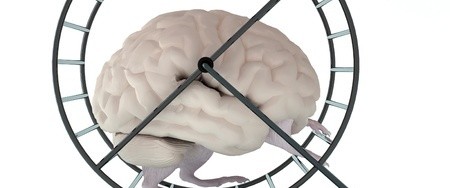I’ll admit that when I’ve experienced a problem I’ve waited until I’m pretty desperate to address it. I’ve also waited until I just can’t take it anymore to get help. First, there are the, “Oh, maybe it’ll resolve itself” thoughts. Then I think, “Well, it hasn’t gone away, but I’ll just look around out there to see if there’s anything that seems helpful.” It’s usually around the “I can’t go on like this” thinking that I’ll decide to seek help and by that time, I’ve been white knuckling it for so long that I’m craving instant relief and resolution.
Sound familiar?
This happens all the time. Many of us don’t seek a solution at the first or second sign of a problem. There are many reasons why people don’t seek help right away. Sometimes it’s pride, sometimes fear. Some of us grew up in homes with unresponsive adults on whom we couldn’t depend for help so, we learned that healthy support isn’t an option. Many of us believe that our circumstances are “just the way life is” and we don’t believe a better alternative is available to us. Whatever the reason behind it, the longer problems exacerbate, the more resources we burn through trying to hang in there.
Often, by the time a person reaches my couch they’re ready to either quit a job, send their kid away, get a divorce, cut off their family, or throw in some other kind of towel. They’re over it (and they’ve been over it) and are looking immediate relief. They’re hoping for a major shift in the first session or two. And this can make for a pretty rough start to therapy.
There are some therapeutic protocols that can yield faster results, but they’re not indicated for every presentation. When they are indicated, there is often a lot of groundwork that has to be constructed before any of these modalities can take hold for a person. It takes practice to become more self-aware of our behavior, to gain insight, to change our thoughts, and to change our behavior. It’s a process.
It’s not that it takes years and years of therapy before anyone can benefit from its tools. It’s just that it’s not going to change things overnight. It took time and action for the problem to build, and it will take time and action for it to resolve. Therapy can sometimes be a painful, scary, and frustrating endeavor. It’s also totally worth it.
So, if you’re reading this and have been thinking about starting therapy, go ahead and start making the calls to the therapists who seem like they might be a good fit for you. If you’re reading this after what feels like a failed therapy attempt or still need to know more about what to expect, read on.
You probably already know that there is no magic elixir, no magic pill or incantation or book that will make all (or any) of your problems disappear. Therapy doesn’t offer a magic cure either. What it does offer is a supportive space to tell your story, reflect with an experienced professional on what has and hasn’t worked and why, and practice new ways of trying to work out the problem. Sometimes people report that it’s felt as though things have gotten worse before they’ve gotten better. It’s messy and challenging to open up the can of worms we’ve been carrying around for years. Other people say that it felt more like slow and steady progress. There are people who felt like they made progress and then crashed again or plateaued. As many people as you gather in a room are as many different stories about the therapeutic experience.
Sometimes you won’t find the right therapist for you, and that will be frustrating. Sometimes you will find the right therapist, and you’ll be frustrated by certain questions or homework assignments or the fact that you have opened up to a stranger, and you’re still really suffering. This is all part of it. In therapy, on your road to wherever it is you want to be, you are going to feel a multitude of emotions, some uncomfortable, some wonderful. You are going to try things that work, and you’re going to try things that don’t work so well. You’re going to make gains, and you’re going to have setbacks. The difference is you won’t be doing it alone. You’ll be doing all of this with an enlisted ally who wants you to succeed, who reflects back to you what they see, and who will offer variations on an approach based on their intimate knowledge of you, your situations, and human behavior.
If you can work through the intermittent discomfort, there’s a whole other world waiting for you on the other side.
Love and Be Loved,
Natalie
